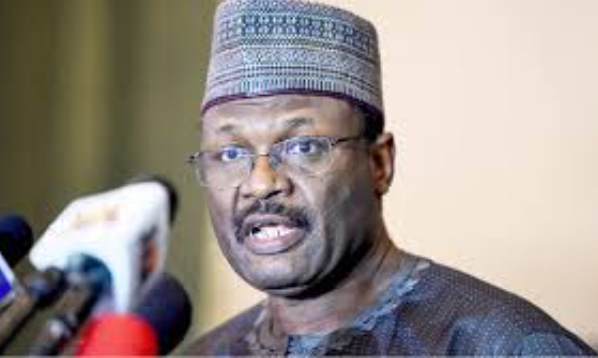
The Independent National Electoral Commission (INEC) says it plans to approach the National Assembly to seek amendment to the Electoral Act 2022 to provide clarity on result management with regard to manual transfer and electronic transmission of results. Chairman of the commission, Prof. Mahmood Yakubu, said this on Thursday in Abuja at a meeting with the state Resident Electoral Commissioners (RECs).
Prof. Yakubu said the issue of result management was one of the eight items arising from the conduct of the 2023 general election requiring legislative action by the National Assembly. He also said that the commission would propose the relaxation of accreditation procedure to allow the use of computer-generated voter’s slip issued to, or printed from the commission’s website for voting instead of strict reliance on Permanent Voters Cards (PVCs).
“Among the major highlights of the commission’s recommendations is the imperative of legal clarity in result management, with regard to manual transfer versus the electronic transmission of results. “The commission also believes that with the introduction of the Bimodal Voter Accreditation System (BVAS), the use of the PVCs as the sole means of identification for voter accreditation on Election Day should be reviewed.
“Those who already have the PVCs can still use them to vote, but going forward, computer-generated slips issued to the voter or even downloaded from the Commission’s website will suffice for voter accreditation. This will not only save cost; it will also eliminate the issues around the collection of PVCs and the diabolical practice of buying up the cards from voters in order to disenfranchise them,” Yakubu said.
He said the review report also contained recommendations on early/special voting for the millions of Nigerians who do not vote at the moment on account of the roles they play during elections such as INEC officials, security personnel, ad hoc staff, observers and journalists who are deployed outside the places where they registered to vote.
He also noted that “There are also recommendations in support of diaspora voting, the unbundling of the commission with the establishment of electoral offences tribunal and a separate agency to handle the registration and regulation of political parties. Similarly, the Commission will step up action on voter access and distribution to Polling Units.
“As a matter of urgency, the commission also intends to develop protocols for the cleaning up of the voters’ register in collaboration with other agencies such as the National Identity Management Commission (NIMC) and the National Population Commission (NPC).
“Other areas of reform include advocacy for affirmative action for greater participation of under-represented groups, a more robust voter education and public communication to combat fake news and misinformation.
“Furthermore, the commission intends to review the mechanisms for a more effective implementation of agreements on logistics with the transport unions and other service providers by consolidating on the recent experience with early deployment and commencement of elections in the recent Ondo state governorship election.”
The INEC boss said that with the conclusion of five major off-cycle Governorship elections and nine out of 21 bye-elections since the 2023 General Election, this is the most appropriate time for INEC to commence the implementation of the recommendations arising from the review of the general election.
“From the internal and external engagements, the Commission has identified 142 recommendations dealing with the general state of preparedness, voter management, voter education and public communication, political parties and candidate management, electoral operations and logistics management, election officials and personnel, partnership and collaboration, monitoring and supervision, election technology, voting and result management, election security, electoral offences and the electoral legal framework.
“Out of the 142 recommendations, 86 require administrative action by the commission. It is therefore pertinent that we engage first with our RECs because of your frontline role in the implementation of the recommendations.
“This is followed by 48 recommendations that require action by a variety of stakeholders, including security agencies, mobile network operators, statutory bodies, political parties, transport unions, civil society organisations and the media,” Yakubu said.